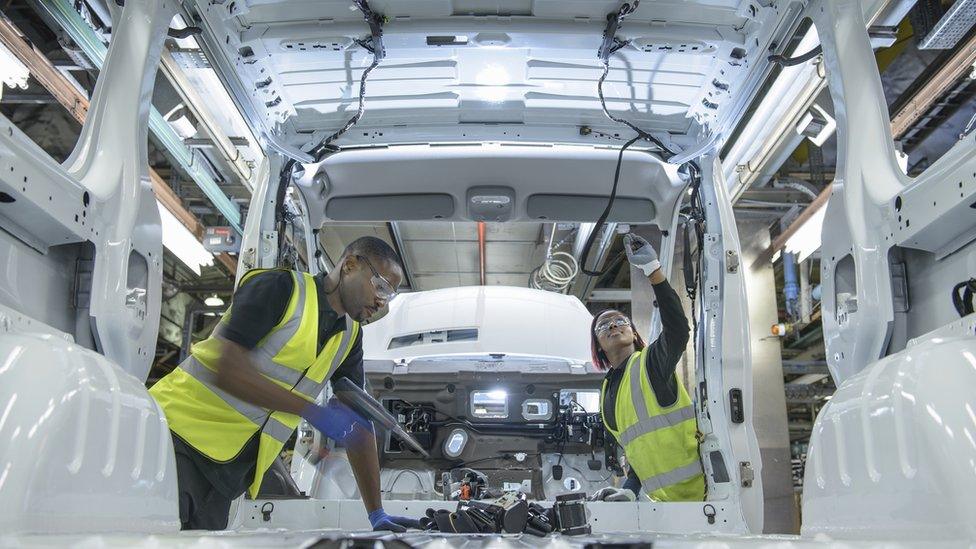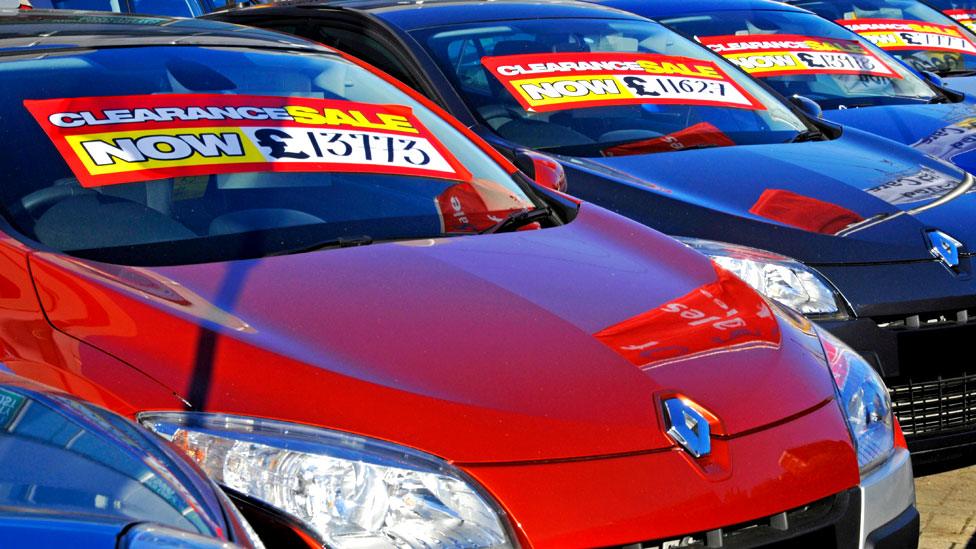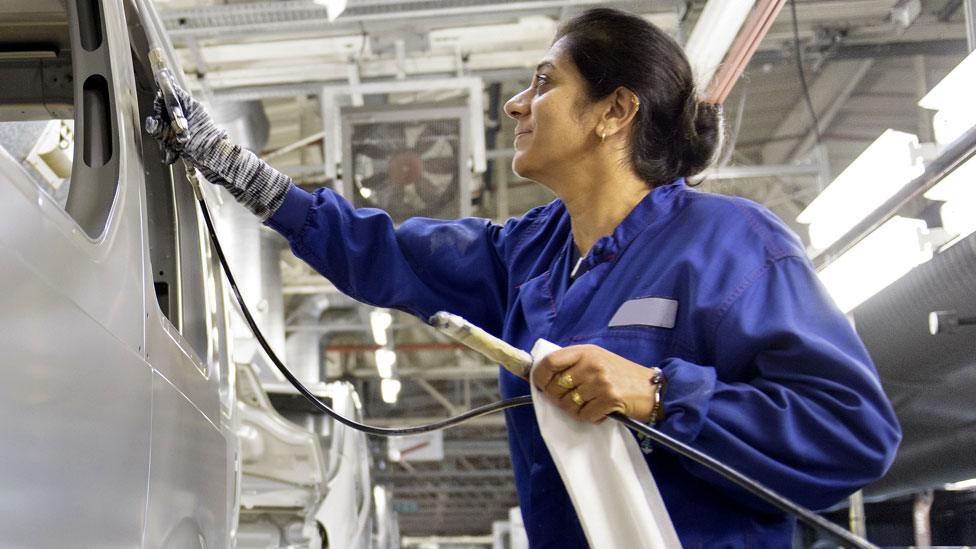New car registrations fall to lowest level for two decades
- Published
- comments

New car registrations fell to their lowest levels in September for more than two decades, according to figures from the industry's trade body.
The Society of Motor Manufacturers and Traders (SMMT) said new registrations dropped 35% compared with the same month a year earlier.
Falling car production has been blamed on an ongoing global shortage of computer chips.
However, sales of electric cars are rising rapidly, the SMMT said.
While the car market as a whole has suffered through the pandemic, more than 32,000 electric cars were registered last month, almost as many as registered in the whole of 2019.
September is usually a bumper month for car sales as the half-yearly change in number plates often attracts buyers.
However, just 214,000 cars were sold in September - the lowest total for the month since the current registration system for Great Britain was introduced 23 years ago.
Last year, new car registrations fell to their lowest level in nearly three decades due to falling production.
About 1.63 million new cars were registered in 2020, compared with 2.3 million in 2019. The 29% decline was the biggest one-year fall since World War Two, when factories were turned over to military production.
SMMT chief executive Mike Hawes said the latest figures showed a "desperately disappointing September and further evidence of the ongoing impact of the Covid pandemic on the sector".
"Despite strong demand for new vehicles over the summer, three successive months have been hit by stalled supply due to reduced semiconductor availability, especially from Asia."
When lockdowns forced production lines to halt, microchip manufacturers diverted the chips that would normally go into new cars to the consumer electronics market, and supply is yet to fully recover.
Alternative-powered cars remain the industry's bright spot, Mr Hawes said.
"The rocketing uptake of plug-in vehicles, especially battery electric cars, demonstrates the increasing demand for these new technologies.
"However, to meet our collective decarbonisation ambitions, we need to ensure all drivers can make the switch - not just those with private driveways - requiring a massive investment in public recharging infrastructure. Chargepoint roll-out must keep pace with the acceleration in plug-in vehicle registrations."
Second-hand car sales in the UK have more than doubled in recent months due to a shortage of new models.
Year-on-year, the used car market grew 108.6% in the second quarter, with more than 2.2 million vehicles changing hands, according to the trade body.
Increased demand led to a rise in sales of older used cars, with only 12.7% of all vehicles sold being made within the last three years, the lowest on record.


New car sales are falling - while demand for used cars is rising. It's a question of availability.
The chip shortage has forced car makers around the world to curb production, and focus their efforts on particular models - those which are most profitable to make and sell.
The result is that waiting times for new cars have been getting longer. Scarcity is also pushing up prices, with discounts being slashed. That may well be deterring buyers.
The slump in sales is bad news for the industry overall - but higher prices could be good for the carmakers long term.
Customers, though, could have to get used to paying more.

Related topics
- Published10 August 2021

- Published29 July 2021
